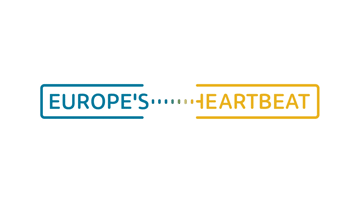125 years of Yakult in Germany. What is your overall assessment?
We have positioned ourselves on the German market with a fermented milk drink from Japan. Our products contain the lactic acid bacteria L. casei Shirota, which reach the intestine alive. When we started selling Yakult in Germany 25 years ago, there were not many manufacturers in Europe offering this type of product. We were the pioneers in this field.
It is important to us that our customers understand the product Yakult. That's why, from the beginning, we have made it a point to create numerous opportunities to try Yakult personally. In addition, the introduction of Yakult to the German market took place gradually in order to build an understanding of our product at the same time. Specifically, this means that Yakult Original was sold in NRW from April 1996. In 1998, the sales territory was then extended to Hesse, Saarland and Rhineland-Palatinate. Since 1999, Yakult has been available throughout Germany, and from then on also with national TV support. In 2002, we launched Yakult Light and in 2013 Yakult Plus on the German market and thus currently offer three product variants. In Germany, 7 - 8 out of 10 people are familiar with Yakult, however, just about 50% of people have actually ever drunk Yakult. For this reason, we will continue to offer opportunities to try out Yakult through product samplings.
The headquarters of Yakult Germany have been located in Neuss since 2000. What role does the location play?
Neuss was the starting point of our activities in Germany and is therefore very important for us. Here we started selling Yakult and in some families Yakult has been drunk from gener[1]ation to generation ever since, now from grandparents to grandchildren. We feel rooted here - also due to the numerous sampling activities that took place here from the very beginning and through which we were able to establish personal contact with the people in the region. We are grateful that we were able to find a new home in Neuss.
To what extent do the needs of European consumers differ from those of Japanese or Asian consumers, and what does that mean for the company?
On this topic, for example, we recently commissioned a survey regarding people's awareness of the connection between the gut and the brain in Europe and Japan. It showed that while 51% of Germans surveyed were aware that there is a reciprocal relationship between the gut and the brain, 45% said that what you eat has an impact on how you feel. But we also saw that this awareness is stronger in Japan.
The core of our corporate philosophy is to contribute to the health and happiness of people around the world through pursuit of excellence in life science in general and our research and experience in microorganisms in particular. Our approach is therefore to create awareness for a healthy lifestyle through numerous offers, e.g. through our website, information material or seminars, and to pass on scientifically sound knowledge to our customers in an easily understandable way. If you compare the product portfolio of Germany/Europe and Japan, you will see that there is a much wider range of products in Japan, for example vegetable juices or soy milk, as well as skin care prod[1]ucts or medication for cancer treatment. In Europe, we are currently focusing on the products with live lactic acid bacteria. Yakult Plus is only available in Europe and has been developed for European tastes to meet the needs and desires of our customers.
The Düsseldorf region and surrounding area has a large Japanese community. To what extent is this important for you and what advantages does it bring?
In 1996, when Yakult was launched, it was a great advantage that there were many Japanese in the region who already knew Yakult. There are also many Germans in Düsseldorf and the surrounding area who work for Japanese companies. I think they trust the Japanese quality and are open to the Japanese culture and way of life. Of course, it was also beneficial to work with Japanese interpreters who had already lived in Germany for a longer period of time and at the same time knew and appreciated Japanese culture.
What are your plans for the future?
Yakult Germany is responsible for the activities in Germany, but the entire company works hand in hand to make Yakult available to as many people as possible. Our mission is to make Yakult an integral part of the everyday lives of people living in Germany - just as it is already in Japan

